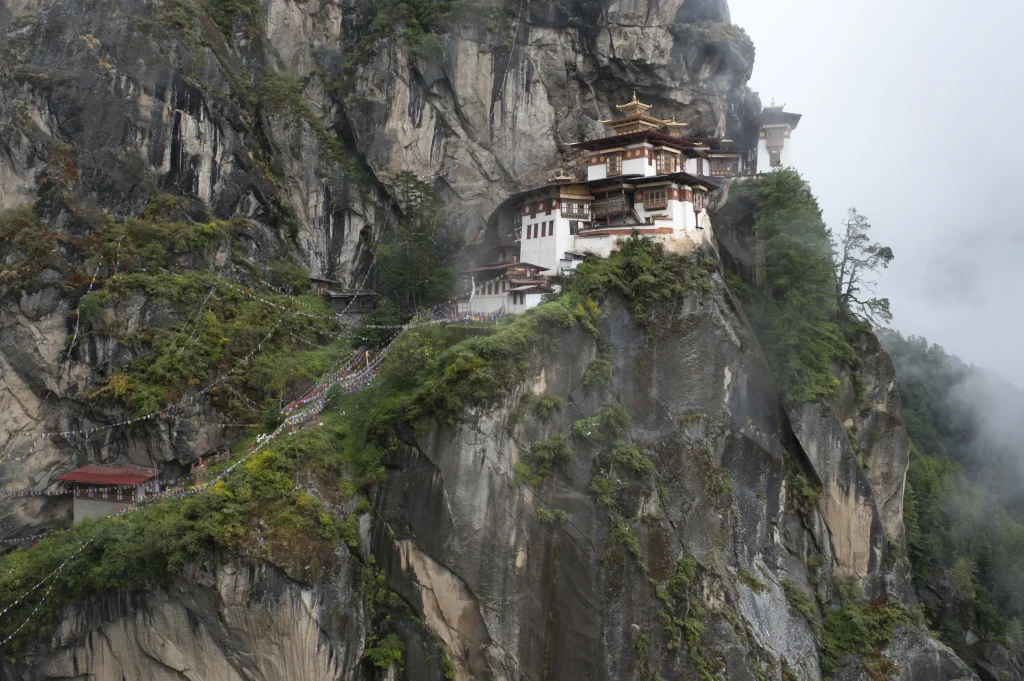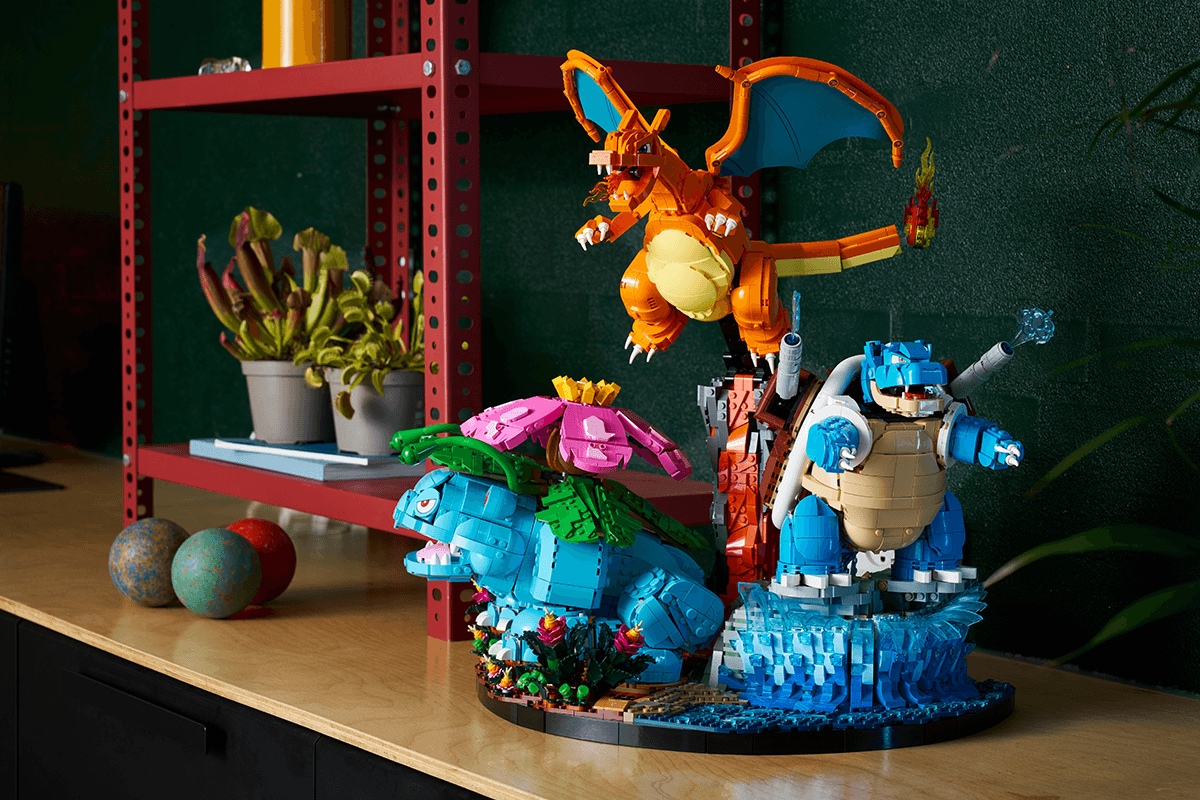At Como Uma Paro, joy is found in the small things. Focused on the meditative and spiritual quality of life, the hotel is a warm haven for weary travellers both beginning and ending their sojourns to the Tiger’s Nest monastery. Zaneta Cheng reports
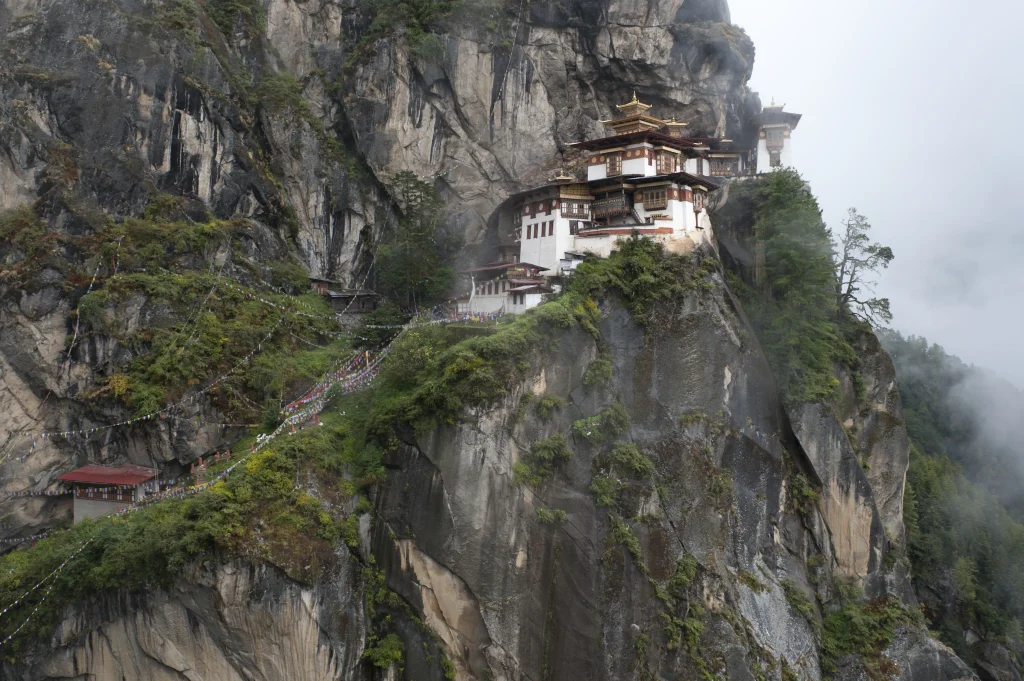
Once the home of a Bhutanese nobleman, Como Uma Paro’s main building is shrouded in a thicket of Himalayan pine on the top of a hill slightly out of the way of Paro’s more bustling centre. To get there, our car snakes along a winding incline before stopping at a white brick building with awnings and pillars of intricately carved and painted wood in the traditional style of the country. The windows glow warmly at dusk and it’s a relief to enter through the hotel’s doors after a five-and-a-half-hour journey from Bhutan’s midlands.
Paro is usually the final stop for travellers in the Dragon Kingdom after touring Thimpu and places further east. The city, which houses both the country’s international airport as well as one of its most treasured monuments, is the last leg on the circuit before guests return home. Home also to the legendary Tiger’s Nest monastery, built into the cliffs of Upper Paro, it’s mecca for the Bhutanese themselves along with almost every visitor to the Himalayan country.
Which is why Como Uma Paro is a natural choice for hikers. The architecture across the property takes its cues from the local temples, a hint of what will be found at the top of the cliff. There’s a sense of peacefulness in the contrast between the dark wood, the colourful carved trim work, and the white brick of the walls. Staff are dressed in goh (national dress for the men of Bhutan) and kira (national dress for the women) and check-in is seamless, touched with the sincerity of Bhutanese hospitality.
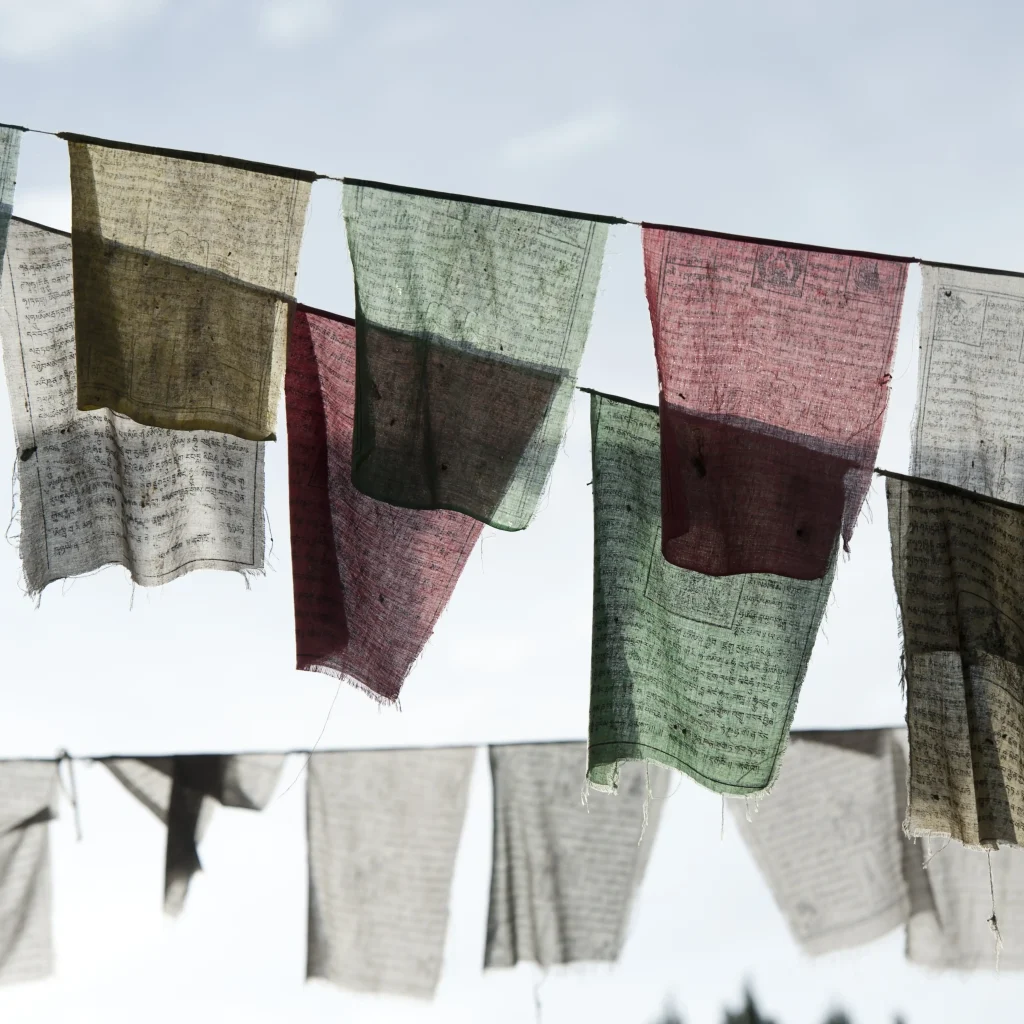
There’s a gift shop selling all manner of traditional Bhutanese dress and ornaments, alongside everyday essentials. On the other end of the building is the restaurant, serving food from the hotel’s organic farm. Grown by local farmers, the produce is taken to the kitchens to support a menu filled both with classic favourites as well as Bhutanese specialities like ema datschi, a spicy, savoury and tangy concoction of chili and cheese.
The space itself is round and overlooks the valley below. In the middle of the room is an imposing brick fireplace reaching up to the domed ceiling. There’s an à la carte menu but the hotel’s thoughtfully curated offering of local specialities renders moot any thinking that might be required by a fatigued traveller.
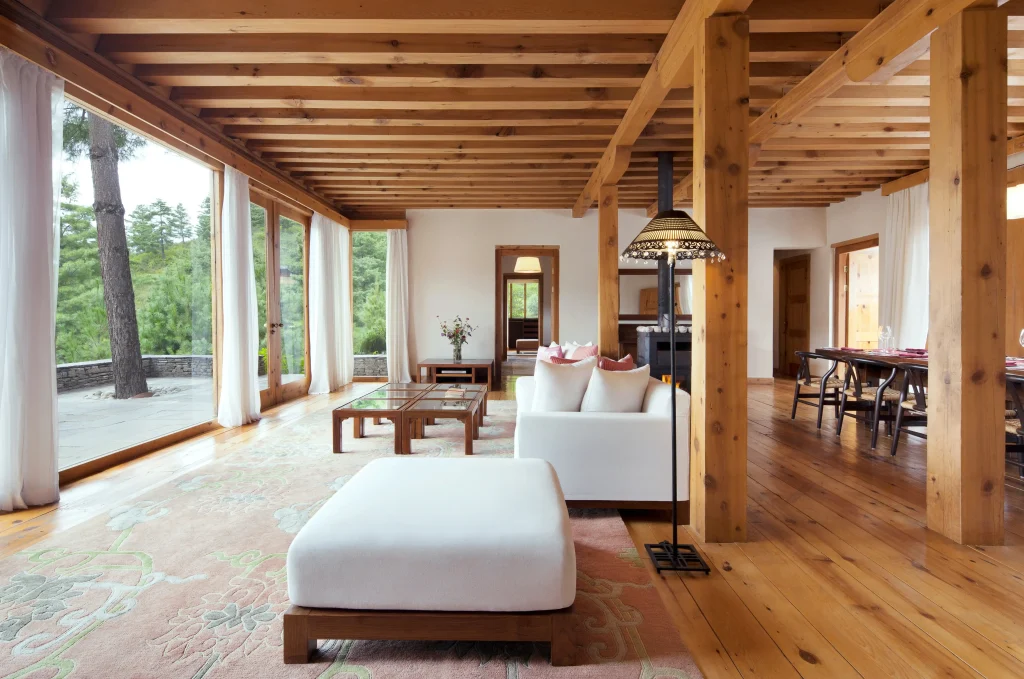
The rooms are clean and bright. Their sparseness is something one would expect from a hotel that leans into the country’s Buddhist ideals of simplicity and meditation. A painted rock for good luck rests on the bedspread as a good night gift. Mine is a valley-facing room, as opposed to a forest-view room, but these are not the spaces that Como Uma Paro is known for. That would be the villas, which many may have already seen thanks to the coverage surrounding the nuptials of Hong Kong megastars Tony Leung and Carina Lau. Married in 2008, the couple held their wedding on the grounds of the hotel and stayed in one of its signature villas, which are nestled in pockets across the vast property. Though spacious, with courtyards, living room, a lounge and dining areas on top of the bedrooms and bathrooms, the villas’ décor continues in the same spartan vein. Whites and woods dominate, placing serenity front and centre.
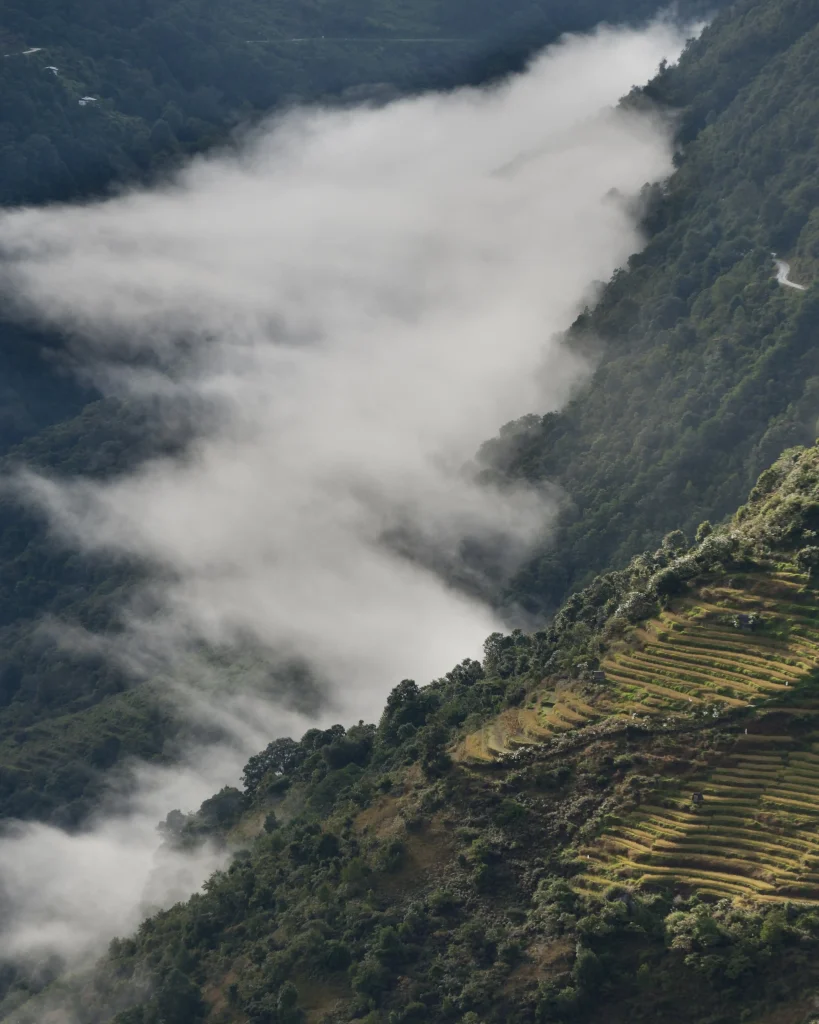
A walk across the grounds themselves is enough to warm one up for a hike. We do so early morning before the 6am meet-up to make our way to the mountain. On request, the hotel is able to prepare snack boxes for the hike and, upon return, guests can choose from the extensive spa menu for massages and hot stone baths to ease the day’s sore muscles. While the spa’s treatment rooms are beautifully appointed, those in the villas can retreat to their private treatment rooms for their cure.
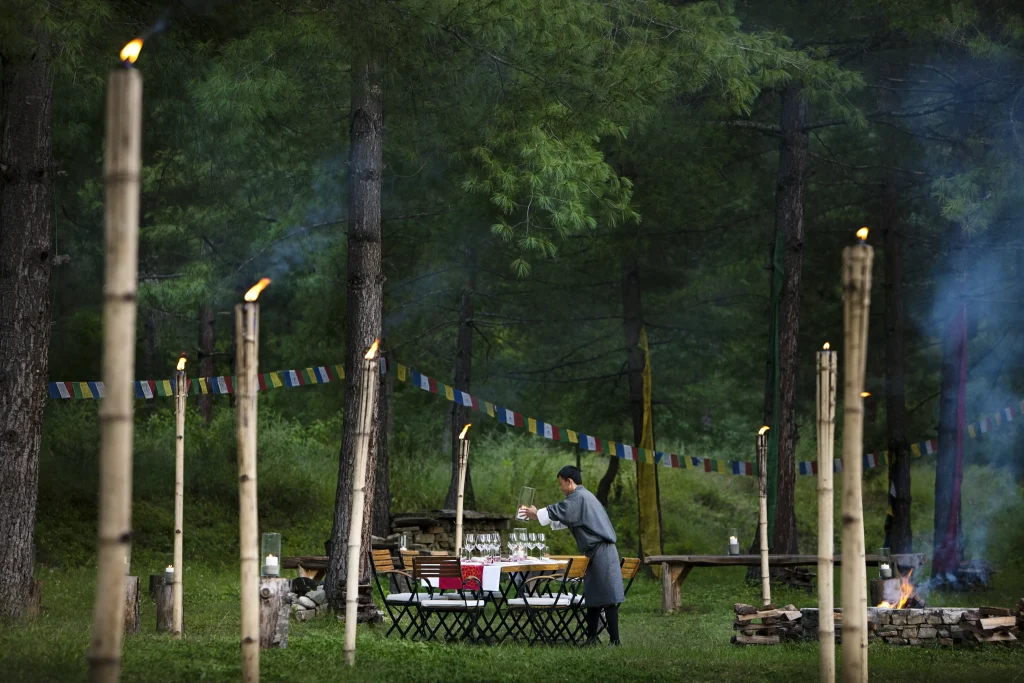
There are also activities on the grounds for those hoping to partake in a local activity like archery, the country’s national sport, closer to home. Indeed, there’s an abundance on offer at Como Uma Paro but its concern is not to present Bhutan at its most ostentatious but to reflect the country’s quiet, meditative pace, its ease in its approach to life and its focus on ensuring that all the indices are in the right place to ensure its guests gross domestic happiness.
Also see: #review: An escape into Balinese traditions at Buahan, a Banyan Tree Escape



